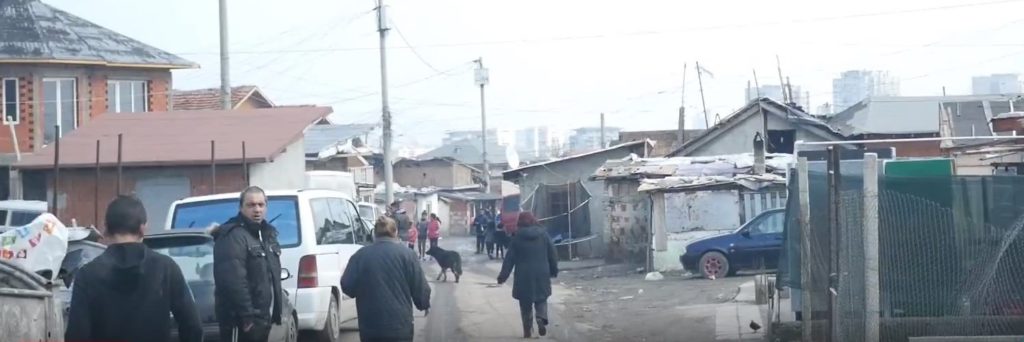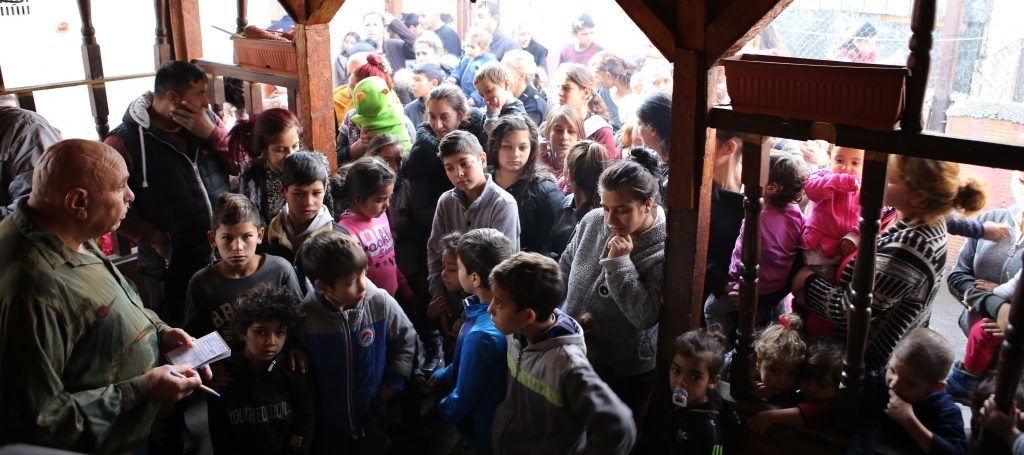The Coronavirus pandemic poses an enormous threat to Roma communities. Among people who are used to being marginalised and shut away from society, new lockdowns, loss of income, and fear of disease in the crowded and often very unhygienic conditions are creating an unprecedented level of anxiety.

Poor housing and services leave low income families vulnerable to Coronavirus
Ani Ilieva lives and works in Fakulteta, a large Roma community of over fifty thousand people in Sofia. She’s director of FSCI’s community centre and kindergarten. “People are very worried. I have never seen the neighbourhood so empty-looking and so scared”, Ani told us. “People are worried about catching the virus, but also about their income. Women working in cleaning companies and offices are currently on unpaid leave. Male taxi drivers also stopped working. In most families there is currently nobody to work”.
Bulgaria declared a state of emergency on March 13th, closing all schools and kindergartens, non-essential retail and restricting the movements and gatherings of citizens. In large Roma neighbourhoods they have gone further. Ani continues, “The week after the emergency was declared a checkpoint was placed at all exits in the neighbourhood. Drones and police cars make the rounds to ensure that many people are not in one place. There is police presence constantly in the neighbourhood”.
Some people are returning from abroad, bringing concerns about whether or not they are carrying the virus with them. They should go into isolation, but that is very difficult in a community where many families live in small one or two room houses that offer little scope for maintaining even minimal barriers and safe separation. Some of the returnees are not isolating at all, adding to the fear in the community that the disease will get a hold, and many lives will be lost.
People are not gathering in the normal manner. They stay indoors as much as they can. Churches have gone online. All the usual, exuberant celebrations around birthdays and weddings are on hold. This is a huge strain on people so used to communal living and requires a great deal of discipline. The small neighbourhood shops allow one customer in at a time. The one large supermarket on the outskirts of the community is strictly policed.
Health workers and NGOs are advising residents about good hygiene, how to implement quarantine and other actions to take if somebody has symptoms. The elderly those who have chronic conditions are very worried, but there are no simple answers to their questions, except “pray”.

Normal methods of distributing aid like this are not currently allowed.
Fakulteta residents are doing what they can to help each other. Initiatives by the football team, local musicians and filmmakers have seen many donations collected to buy groceries to make up food packages for people in the very poorest part of the neighbourhood, with 800 families receiving support so far!
How long can Fakulteta cope with such a high number of people having had their income taken away? Not long.
Ani and her team are helping folk where they can. They are connected to a large number of families through the community centre, and are working together with the Regional Health Inspectorate. Their advice and practical assistance will be sought by many in the neighbourhood during this crisis. FSCI will support the team as they serve their community, diverting some of the funding set aside for the currently closed kindergarten to help families in dire need. The level of fear and anxiety here is high, and the need is great, but there is hope too. By working together, and with some help from outside, the community can pull through.
If you would like to support Ani and her team financially right now, you can make a donation here.
